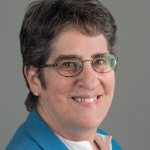Writing a good scientific paper isn’t easy, but after you learn the formula, the burden of how to structure the paper is reduced.
How to Become a Better Writer
Dr. Hausmann asked how rheumatologists can become better writers. Dr. Solomon was a liberal arts major in his undergraduate studies, which required a lot of writing. He also had mentors, including Matthew Liang, MD, MPH, Dr. Katz, and Jerry Avorn, MD, who he says are excellent writers.
Learning from the feedback you get is critical. “I always tell trainees that when I make suggestions, to apply those suggestions more broadly. Not just to the sentence at hand, but to the paper or to your writing in general,” he says.
Reading good scientific literature to understand why it’s published in higher level journals can also help with writing. Dr. Solomon encourages rheumatologists who want to publish more papers to volunteer as a reviewer for a medical journal. This experience allows individuals to become familiar with the writing and structure of papers.
Also, staying open minded about critiques of your work can help. “Putting one’s ego aside and then looking at the criticisms in a purely academic sense allows one to better respond and learn from the critiques that we all get,” Dr. Solomon says.
Even with his vast publishing experience, most of Dr. Solomon’s papers have had at least one or two rejections. He processes the critiques and learns from them.
Writing a good scientific paper isn’t easy, but after you learn the formula, the burden of how to structure the paper is reduced.
Find the Right Journal
Dr. Hausmann wondered if Dr. Solomon has a target journal in mind when he starts a new project.
When formulating a clinical research question, Dr. Solomon says he assesses if the results will provide a small, medium or large increment of new knowledge to the medical field. For a large increment of new knowledge, he considers such journals as The New England Journal of Medicine, JAMA or Annals of Internal Medicine. If it’s something of less interest to a general medical audience, but new for rheumatology, he considers such journals as Arthritis & Rheumatology or Annals of the Rheumatic Diseases.
If you are unsure where your research fits along this continuum, Dr. Solomon advises individuals to discuss it with the senior authors who are part of your project.



